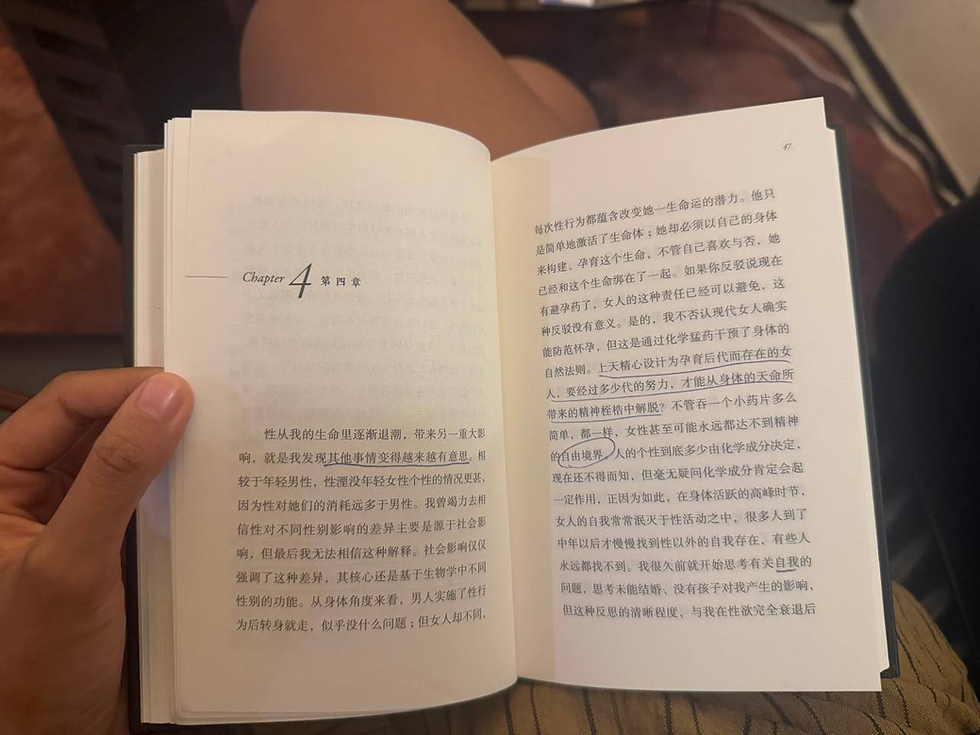The Shadow of Motherhood
- Shikin Xu
- Sep 30, 2025
- 4 min read
Motherhood is often wrapped in images of tenderness, sacrifice, and unconditional care.
Yet there is another side, rarely spoken of.
It is the shadow of motherhood.
We have probably felt it, in subtle or overwhelming ways:
the heavy burden of being placed in the role of caretaker for one’s own mother;
the constant sense that we must always do more to satisfy her;
the expectation of putting her first;
the silent demand that a child should choose his mother over his own partner in any circumstance;
and the unspoken pressure to soothe her moods before tending to our own.
The child becomes responsible not only for his own growth but also for tending to the “inner child” of his mother. What appears to be love easily turns into a selfish symbiosis, where the mother clings to her son as if he were her only source of comfort, identity, or stability.
This is narcissistic, selfish, controlling, insecure, misplaced, deceptive, destructive, suffocating, manipulative, possessive, demanding, smothering, parasitic, and devouring.
This is a distorted bond that pretends to be love but suffocates both lives from within.
It is as if, after giving birth, the mother refuses to cut the umbilical cord.
To speak of the dark side of motherhood is not to deny its tenderness.
Motherhood is luminous, gentle, nourishing, patient, protective, generous, forgiving, radiant in its warmth. It is the first language of comfort, attachment, and love, the primal embrace that teaches safety and belonging.
But to face the truth that this same love and beauty can also be possessive, manipulative, and consuming is an act of courage.
It requires us to hold both realities at once.
Psychology calls it an unhealthy symbiosis, where a mother’s devouring desire is born not from pure love but from her own unresolved wounds. These may include early trauma, emotional deprivation, and unmet narcissistic needs that were never addressed in her own development. In families where genuine care was absent, or where the environment was harsh and unforgiving, the mother may have grown up with deep insecurity in her ability to relate to others. Unable to trust or depend on herself and adult relationships, she turns to her child as the only stable source of attachment.
In this dynamic, the child is unconsciously positioned as a substitute for the mother’s unmet needs, expected to provide comfort, validation, and emotional regulation that the mother cannot find elsewhere. What begins as a natural bond between mother and infant evolves into a fusion where boundaries collapse: the child becomes responsible not only for his own growth but also for holding together the fragile inner world of his mother. This is what makes the relationship feel suffocating and consuming, a shadow side of motherhood that is both psychologically complex and profoundly destructive when left unacknowledged.
And yet, I believe every person carries their own wounds, stories, and pain.
The real question is: are you willing to face them?
To become the father and mother of our own inner child?
To free our children, so they can pursue their own selves instead of carrying what was never theirs to hold?
There is a hidden but fundamental responsibility of love: to take on the work of healing ourselves, so that love does not become a chain.
When a parent dares to face their own wounds, the child is freed from carrying what was never theirs to hold.
The child also needs to learn something, about the meaning of boundaries and love:
Love is not blind giving and listening, not unthinking filial piety, not self-sacrifice at the expense of one’s own life.
It is not swallowing our parents’ version of the story without question, nor copying their choices into our own existence.
It is not shrinking ourselves, belittling our worth, or carrying responsibilities that were never ours to begin with.
Sometimes the greatest act of love is to stop repeating the patterns that caused pain, and to begin a new story.
To recognize this shadow, to truly look at it, is never easy. We all long for life to be only love and light.
But pretending the darkness isn’t there only keeps us trapped.
Naming it is the first act of courage.
Then comes the harder work: to find our own way of being.
Some traits must not be inherited; some cycles must end.
What once sustained us can also turn corrosive, like milk from the breast that should nourish, but instead carries poison. To keep drinking it blindly is not devotion but decay, a slow flooding of the body with what sickens rather than heals. And if left unchallenged, that poison seeps forward, passed from one generation to the next.
The decision to stop is not about being ungrateful, not at all, it is about love: love for ourselves, love for healthier relationships, and love for the chance to build connections that don’t trap us, but set us free.
Cutting is painful work, but also cleansing.
It is the labor of clearing the ground, of refusing the poisoned inheritance, so that what remains can nourish rather than corrode.
For ourselves, and for those who come after us, it is the most radical tenderness we can offer.






Comments